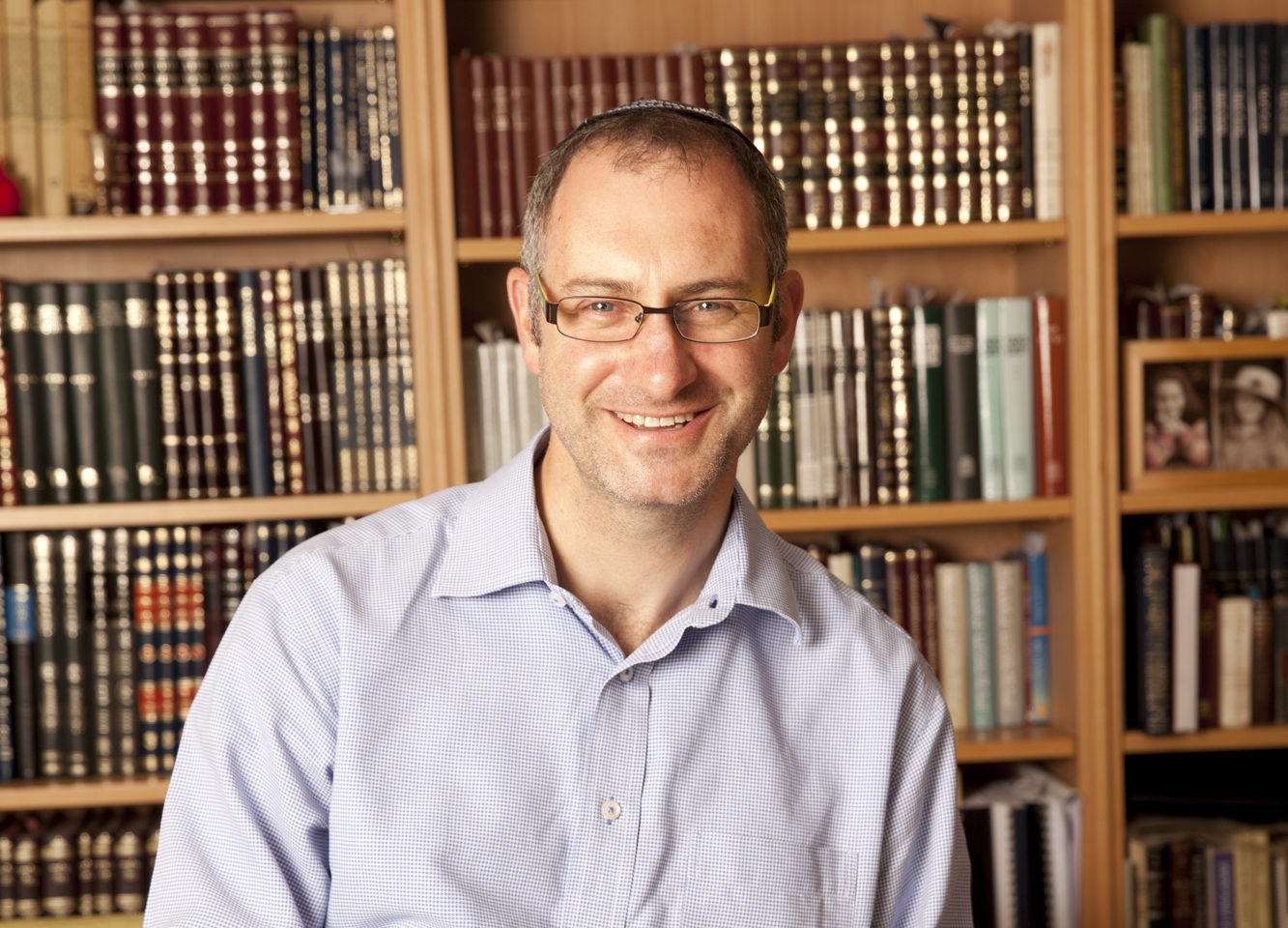
Featured Item

Never bored at the board: Kacev reflects on 17 years of education
For 17 years, Rabbi Craig Kacev deftly steered the South African Board of Jewish Education (SABJE) to financial sustainability, talent development, and academic excellence. And then last week, he fulfilled a lifelong dream.
He and his wife, Yael, joined 286 overjoyed Ethiopian Jews making aliyah. Speaking to the SA Jewish Report from his quarantine hotel in Haifa, Kacev reflected on his time at the SABJE.
A son of Pretoria, Kacev matriculated at Carmel College. He spent various periods studying in Israel and graduated with a B Compt from the University of South Africa. He was rabbi of the West Street Shul in Johannesburg for 12 years.
In 1996, he was approached by Rabbi Isadore Rubinstein to fill in for a teacher at King David Linksfield. Admitting that he was highly intimidated and uncertain of his ability to succeed, he took on the role, which he enjoyed, and became hooked on education. He taught Jewish Studies and some Business Studies and Accounting for two years, and was then made head of Jewish Studies at King David Victory Park.
The SABJE saw his potential. He was appointed acting director in September 2003 at the age of 32. The late Mendel Kaplan – a celebrated Jewish communal leader – asked Kacev to lunch at Shula’s Restaurant in Rosebank. “Mendel told me I was too young for the job, and not ready. I replied that Rabbi Moshe Isserles was appointed Chief Rabbi of Krakow at the age of 18. He too was young, but commented that he would get better at it every day.”
Kaplan committed to mentoring Kacev. “I got good community support from the word go.” Kacev became SABJE director in July 2004, among a young crop of communal leaders including schoolmate Chief Rabbi Dr Warren Goldstein, Michael Seeff, and Wendy Kahn.
Kacev giggled as he recalled indelible memories, many of which he “can’t repeat”. Once, the hydraulics failed on a school bus transporting learners from Yom Ha’atzmaut at Gold Reef City. The driver minimised damage by rolling backwards onto a bowling green and crashing into a pole. “When I got that call, I rushed to the scene, heart thumping,” Kacev said. “Thank G-d everyone was fine. It was a wake-up call about managing risk. We ordered new buses, and I learned that you can’t compromise on safety.”
He recalls convincing President Thabo Mbeki and Education Minister Naledi Pandor at the Union Buildings to retain Hebrew on the curriculum. But then, a rumour spread that Kacev was trying to ditch the subject. About 200 high school students marched on his office, demanding that Hebrew be retained. “That misunderstanding strengthened my faith in the system. Students were so passionate about their Jewish identity.”
The Josh Broomberg Affair in 2014 (when the pupil wore a keffiyeh at an international debating event during the Gaza War to support the Palestinians and the photo went viral) was a mammoth challenge.
“King David became a political football, and the community was angry. I received two petitions with 10 000 signatures each, for and against Broomberg’s actions. I was grateful for my board in those tough times. We headlined The Star twice that year!
“It’s much easier to resolve student conflicts than parent conflicts,” he said. Kacev had to mediate after a parent slapped a school secretary, who laid assault charges. He had to separate fighting parents at the tuckshop, and often dealt with grandstanding divorced spouses. One parent drove over another’s foot. He once had to lock a parent out of the school. He also found a huge beehive, where a teacher hoped to produce honey, tucked away on the edge of one of the schools.
“For every mad story, there were 100 good stories – kind parents, heroic teachers, and amazing kids who looked after their friends.”
So what kept him at the SABJE for 17 years? “King David schools offered a dynamic and ever-changing environment. I could never get bored. I had to keep checking myself, make sure I was making a difference. I got the opportunity to contribute and serve, and do big things while learning from some superb board members about leadership.
“I stayed because I learned so many new things,” Kacev said. “I became a transport manager, a school-uniform designer. I learned about legal issues in schools, and could use my financial background.” The secret to success is having policies and systems that are clear, he said.
The SABJE had precarious finances, with aging, neglected infrastructure when he took over. “I’m proud that in the past 17 years, we have always broken even and have invested substantially in facilities.”
Kacev visited the United States to see where King David schools could be improved. “Our mantra became ‘the best teachers, with the best curriculum in the most appropriate facilities’.” Building collegiality between the sometimes-competitive schools was also a priority.
“When the community was steadily shrinking and shul attendance was declining, schools became a centre for perpetuating Jewish identity,” Kacev says.
The schools sought to nurture Jewish leadership, and he’s proud of the learnership programme that has supported almost 40 ex-Davidians to become young, dynamic teachers.
“Building King David Ariel fulfilled another dream. We wanted a high-quality Jewish remedial school, and it has exceeded our most optimistic models. It’s so gratifying.”
He is most proud of receiving the 2014 Max M Fisher Prize for outstanding Jewish educators in the diaspora. “It was a big moment to receive the award from Natan Sharansky in Israel.”
“The year 2020 was another good example of amazing leadership and a supportive board. Looking back, I think we closed the schools too early, and closed the country too early. You must balance social, academic, health, and financial considerations. There’s no perfect decision. The department of basic education further confused things, being slow, gazetting unclear regulations, constantly making changes.”
Once online learning got going, it had to be in partnership with parents. “COVID-19 was like an MRI – it exposed our underlying societal problems. It did allow us to push technology. We leapt two or three years in six months. We will increasingly see technology used in teaching.”
Kacev is confident in handing the reins to his replacement, Rabbi Ricky Seeff. “He’s a King David graduate himself, creative, and the man for the moment. Having him in place made it much easier to leave South Africa.”
Kacev plans to stay in education. He is helping the SABJE develops its Chumash curriculum, mentoring and coaching South African educators and others, and managing a project on Jewish thinking skills. By May, he should be involved in a Jewish education programme with worldwide impact.
His final message is not to take our Jewish schools and communal institutions for granted. We need to support these bodies to sustain the vibrancy and viability of the South African Jewish community.










